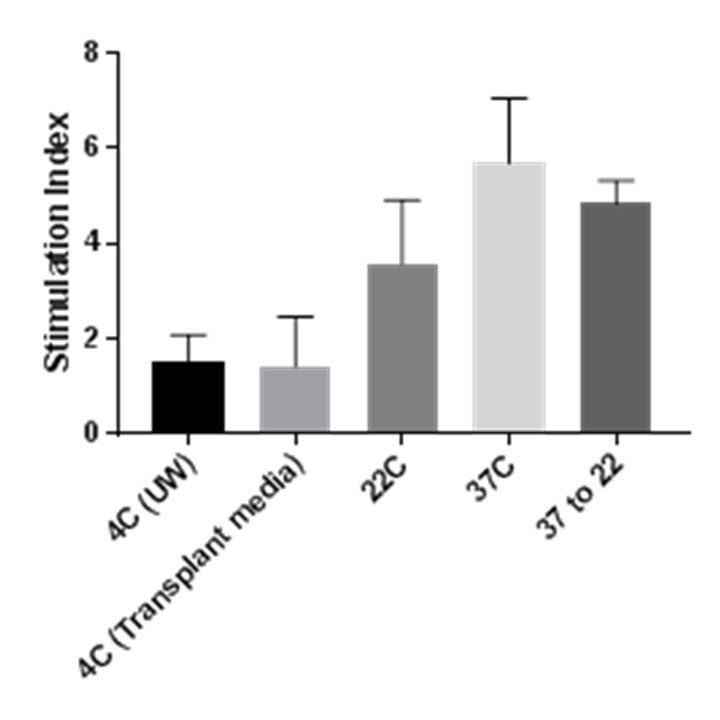Assessment of Culture/Preservation Conditions on Survival and Function of Islets
Surgery, Virginia Commonwealth University, Richmond, VA
Meeting: 2019 American Transplant Congress
Abstract number: A119
Keywords: Inflammation, Insulin, Outcome, Preservation solutions
Session Information
Session Name: Poster Session A: Islet Cell and Cell Transplantation
Session Type: Poster Session
Date: Saturday, June 1, 2019
Session Time: 5:30pm-7:30pm
 Presentation Time: 5:30pm-7:30pm
Presentation Time: 5:30pm-7:30pm
Location: Hall C & D
*Purpose: Culture or preservation of human islets prior to transplantation has been adopted by various centers because it may reduce immunogenicity, suppress exocrine contamination and provide flexibility for evaluation of islets and preparation of patients. However, the effect of islet culture/preservation before transplantation still remains to be determined with regards to inflammation, post-isolation stress related damage and recovery. In this study, we evaluate the effects of different culture/preservation conditions on islet survival, function and pro-inflammatory gene analysis.
*Methods: Human islets isolated from cadaveric research pancreas using modified Ricordi’s method were purified using density gradient centrifugation by COBE 2991 cell processor. High purity islets were cultured or preserved under four different conditions: Preservation at 4°C for 48 hours in Connaught Medical Research Laboratories (CMRL)-based transplant media; and cultured at 22°C for 48 hours in Prodo Islet Media Standard PIM(S) medium; 37°C for 48 hours in PIM(S) medium; or 37°C for 24 hours followed by 22°C for another 24 hours in PIM(S) medium. Recovery and viability of islets, insulin secretory capacity, gene expression and islet damage were evaluated at 24hrs and 48hrs culture time points.
*Results: Islet viability at 48hrs was reduced when islets were preserved at 4°C in either UW solution or CMRL transplant media solution, compared to culture at 22°C, or 37°C. Islet recovery was higher in 4°C preservation conditions compared to culture. Insulin secretory function was also affected at 4°C preservation compared to culture conditions (Figure 1). Inflammatory genes (IL-1β, TNFα, HMGB1) were upregulated at culture conditions 22°C and 37°C but not in 4°C preservation.
*Conclusions: Both culture and preservation conditions may affect islet in different ways. Culturing islets at higher temperature preserves viability and function, but affects recovery and induces inflammatory signals. Whereas preservation improves recovery and prevents inflammatory signal activation but affects viability and function of islets. Therefore it is necessary to evaluate outcome of fresh islets with cultured or preserved islets in clinical setting.
To cite this abstract in AMA style:
Shindo Y, Levy MF, Kanak MA. Assessment of Culture/Preservation Conditions on Survival and Function of Islets [abstract]. Am J Transplant. 2019; 19 (suppl 3). https://atcmeetingabstracts.com/abstract/assessment-of-culture-preservation-conditions-on-survival-and-function-of-islets/. Accessed February 27, 2026.« Back to 2019 American Transplant Congress

